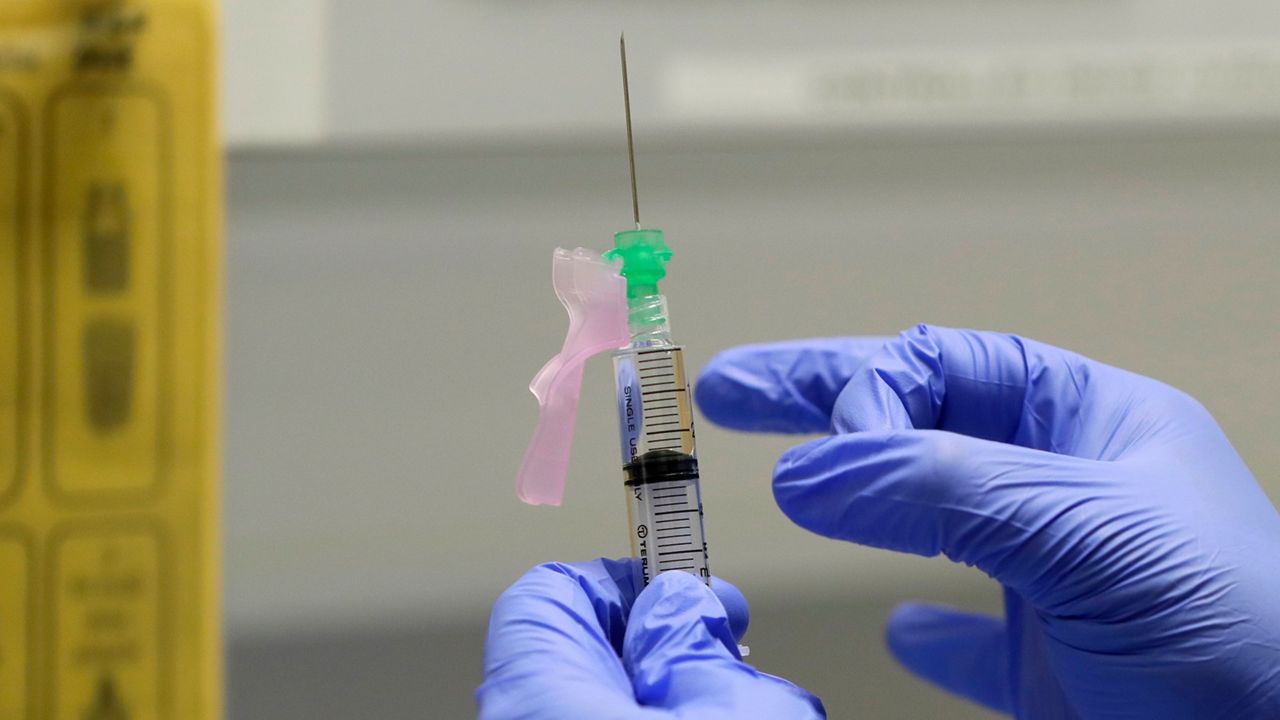NATIONWIDE — The Centers for Disease Control and Prevention notified health officials in all 50 states and five large cities last week to prepare to distribute a coronavirus vaccine by late October or early November, according to a report Wednesday.
The guidance distributed by the CDC outlines detailed scenarios for distributing two unnamed vaccine candidates — each requiring two doses a few weeks apart — to hospitals, mobile clinics and other facilities, The New York Times reported. Health care professionals, other essential workers and national security employees will be the first to receive the vaccine under the agency’s plan.
Also prioritized are people aged 65 or older, those from vulnerable racial and ethnic minority populations, Native Americans and incarcerated individuals.
The CDC, however, noted that its plans were still hypothetical because the coronavirus “vaccine landscape is evolving and uncertain, and these scenarios may evolve as more information is available,” according to the report.
While many Americans are eagerly awaiting a vaccine for the virus that has killed more than 184,000 people in the country and over 858,000 people worldwide, the quick timeline is likely to stoke fears by some that the Trump administration is rushing out a vaccine for political reasons. Election Day is Nov. 3.
At his Republican National Convention speech last week, President Donald Trump promised a vaccine “before the end of the year, or maybe even sooner.”
“It’s hard not to see this as a push for a pre-election vaccine,” Saskia Popescu, an infection prevention epidemiologist based in Arizona, told the Times.
Initial estimates in March said it would take 12 to 18 months to develop a vaccine.
Three vaccines are currently in Phase 3 clinical trials in the U.S. Moderna and Pfizer began their trials in late July, but as of last week had only about half of the 30,000 volunteers they each need to enroll. AstraZeneca announced Monday its vaccine candidate has entered the final testing stage.
Doctors say a Phase 3 trial should take at least a few months. In addition to needing to enroll 30,000 volunteers, which doesn’t happen overnight, vaccine makers must administer both doses about four weeks apart, wait a couple of weeks to allow individuals to reach a full immune response to the second shot and allow enough time to determine whether the placebo group is being infected at a higher rate than those who received the vaccine.
Stephen Hahn, commissioner of the Food and Drug Administration, said in an interview last weekend that his agency might fast-track a vaccine through an emergency-use authorization if “the benefit outweighs the risk in a public health emergency.” An emergency-use authorization does not require the completion of Phase 3 trials or full FDA approval.
Hahn, however, has repeatedly said he won’t allow political pressure to enter into the FDA’s decision-making about a vaccine.
Dr. Anthony Fauci, head of the National Institute of Allergy and Infectious Diseases, told NBC’s “Today” show Wednesday that he’s optimistic “we will feel comfortable that we do have a safe and effective vaccine” by the end of the year.
Fauci, however, said he would not support pushing out a vaccine that had not been rigorously tested.
“If you are making a decision about the vaccine, you’d better be sure you have very good evidence that it is both safe and effective,” Fauci said. “I’m not concerned about political pressure.”
Fauci has previously warned that rolling out a vaccine too early could hurt efforts to develop other vaccines because enrolling volunteers for those clinical trials would be more difficult, if not impossible.
Several prominent doctors and experts, meanwhile, are calling for the creation of an independent commission to review data from coronavirus vaccine trials before one hits the market, CNN reported this week. The physicians believe an additional layer of independent review could boost the public’s trust in a vaccine.
The five cities the CDC shared its vaccine guidance with were New York, Chicago, Philadelphia, Houston and San Antonio, the Times reported.



